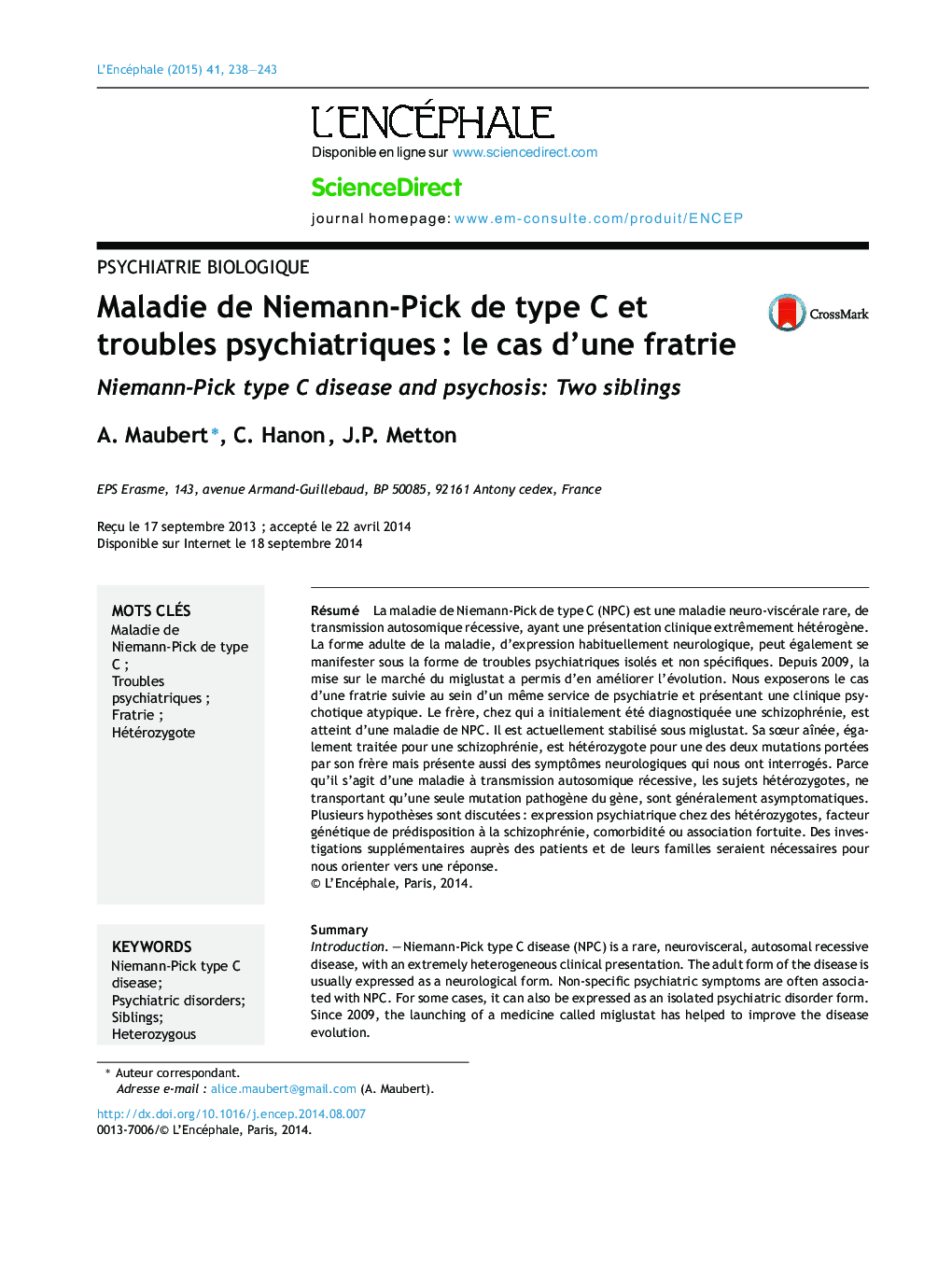| Article ID | Journal | Published Year | Pages | File Type |
|---|---|---|---|---|
| 4181665 | L'Encéphale | 2015 | 6 Pages |
Abstract
Because NPC is an autosomal recessive condition, heterozygous individuals carrying only one causal gene mutation are usually asymptomatic. Thus, while the accepted wisdom would suggest that patient 2 is not affected by the disease, it is interesting to consider why she has developed neurological and psychiatric disorders like her brother. Several hypotheses are discussed: mental expression in heterozygous genetic factor predisposing to schizophrenia, comorbidity or fortuitous association. It is not currently known whether a patient with a single NPC gene mutation can express NPC in full, partially, or perhaps just to a minimal degree. This case of a patient with a heterozygous “carrier” NPC genotype and neuropsychiatric disorders suggestive of the disease raises the possibility that symptomatic heterozygous NPC patients may exist. On the other hand, if the heterozygous genotype of patient 2 does not give rise to symptomatic disease, it is pertinent to question whether it could be a predisposing factor for the development of psychiatric pathologies. There are currently no published data on the occurrence of heterozygous NPC1 or NPC2 mutations among patients with atypical psychiatric presentations combined with neurological symptoms. Conversely, there are no published data demonstrating an increased frequency of psychiatric disorders in families affected by NPC. Finally, in view of the history of psychiatric disorders in this family, it is possible that psychosis simply occurred concomitantly with symptomatic NPC in patient 1 by chance, and that schizophrenia occurred simultaneously with an asymptomatic NPC carrier genotype in patient 2. To investigate this further, NPC patients' carrier family members (parents and siblings) should be fully screened for signs suggestive of the disease.
Keywords
Related Topics
Health Sciences
Medicine and Dentistry
Psychiatry and Mental Health
Authors
A. Maubert, C. Hanon, J.P. Metton,
